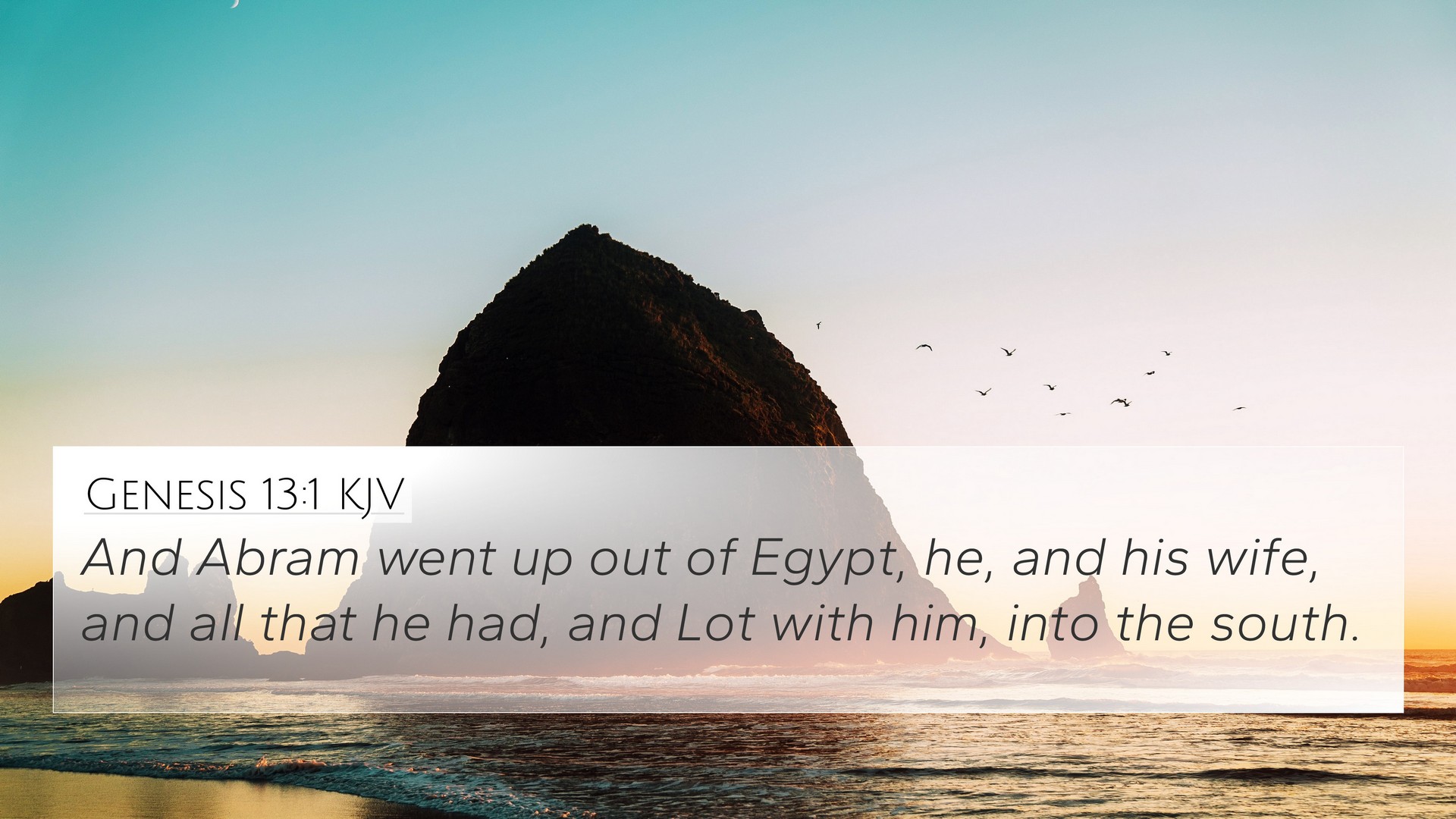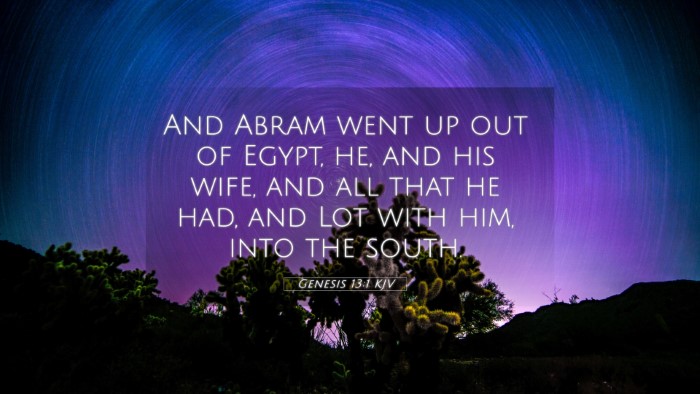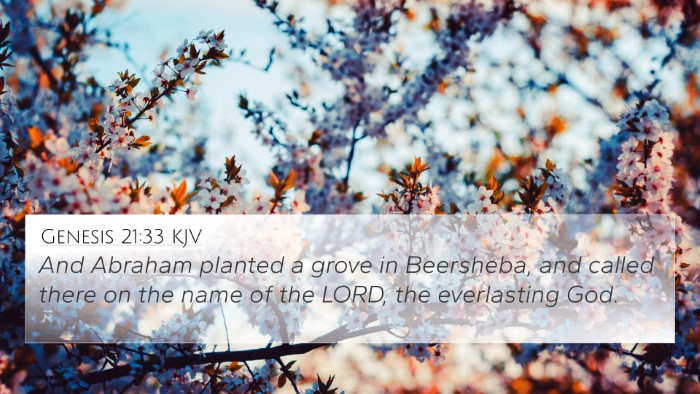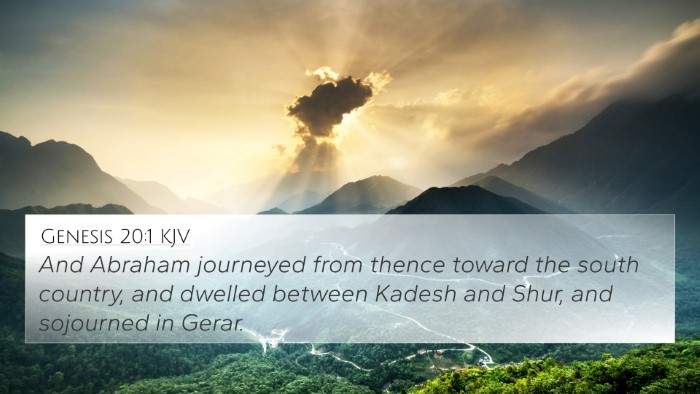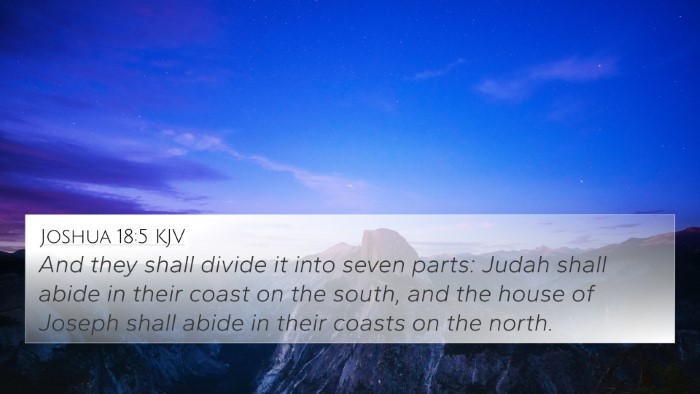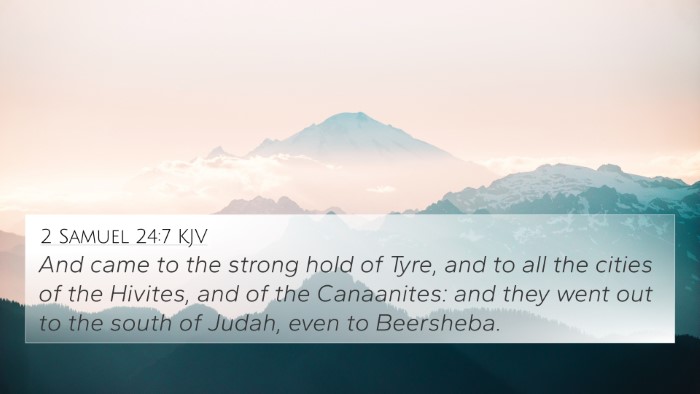Understanding Genesis 13:1
The verse Genesis 13:1 states, "And Abram went up out of Egypt, he, and his wife, and all that he had, and Lot with him, into the south." This verse marks a significant moment in the journey of Abram, later named Abraham, who is a pivotal figure in the Biblical narrative. Below, we explore the meaning and implications of this verse through various lenses gathered from public domain commentaries.
Contextual Background
In order to grasp the meaning of Genesis 13:1, it is essential to consider the context in which it appears. After a sojourn in Egypt due to a famine in the land of Canaan, Abram returns to the southern region known as the Negev. Commentary from Matthew Henry emphasizes that Abram's exit from Egypt signifies a return to the promised land, highlighting a spiritual and physical journey.
Insights from Commentators
-
Matthew Henry:
Henry points out that Abram's departure from Egypt indicates a removal from potential danger and moral corruption, as Egypt often symbolizes the world and its temptations. This return showcases Abram's faithfulness to God's covenant and his desire to reclaim his position in the land promised by God.
-
Albert Barnes:
Barnes notes that this journey back to the south was a critical moment in Abram's life. By returning, he aligns himself once again with God's plans and purposes after a sojourn that represented a departure from faith. The presence of Lot, Abram's nephew, is significant as it foreshadows the complexities that will arise in Abram's familial relationships.
-
Adam Clarke:
Clarke adds that the mention of "all that he had" implies the wealth and livestock that Abram had acquired in Egypt. This brings attention to the material blessings gained during his time away, but also suggests the inherent risks of becoming too attached to worldly possessions.
Thematic Connections
Genesis 13:1 is not isolated in its message and can be understood through its links to other key biblical texts. Below are Bible verse cross-references that illuminate connections within Scripture:
- Genesis 12:10: This verse recounts Abram's initial descent into Egypt due to famine, setting the stage for his return.
- Genesis 13:4: This verse highlights Abram's worship after his return, emphasizing the importance of maintaining a relationship with God.
- Genesis 14:14: Illustrates Abram's leadership and protection of Lot during a time of conflict, which stems from their close relationship.
- Hebrews 11:8-10: This New Testament verse speaks about Abram's faith and journey into the promised land, connecting the Old Testament narrative with its fulfillment.
- Psalm 105:12-15: Offers a broader context regarding God's protection over His chosen ones, thereby affirming Abram's significance in biblical history.
- 2 Corinthians 5:7: Discusses the principle of walking by faith, echoing Abram's trust as he navigates his journey.
- Matthew 1:2-3: References Abram in the genealogy of Jesus, which underscores his enduring legacy in faith.
Cross-Referencing Themes
The process of cross-referencing Biblical texts, as discussed in frameworks such as Bible concordance tools, can deepen the understanding of Genesis 13:1. By examining these connections, we can recognize prevalent themes such as:
- The journey of faith: The movement from one place to another often symbolizes spiritual growth and reliance on God.
- Divine protection: God's covenant remains a recurring theme, emphasizing His commitment to Abram and descendants.
- Moral choices: The contrast between Egypt and Canaan highlights the good and bad decisions made in relation to faith.
Practical Applications
For modern readers, the themes derived from Genesis 13:1 and its cross-references encourage us to reflect on our spiritual journeys. Below are some insights for application:
- Faithfulness: Like Abram, we should continually seek to align our paths with God’s calling, stepping away from worldly influences.
- Relationships: Just as Abram and Lot navigated their familial ties, we too must consider how our relationships impact our faith journey.
- Abundance and Responsibility: As we acquire blessings in life, we must remain vigilant and responsible in how we manage them according to God’s principles.
Conclusion
In summary, Genesis 13:1 serves as a pivotal verse that highlights the complexities of Abram’s faith journey. Through the insights gathered from Matthew Henry, Albert Barnes, and Adam Clarke, as well as the examination of various cross-references, we gain a deeper understanding of the significance of this moment in biblical history. This verse connects to broader themes of faith, divine guidance, and moral integrity, encouraging us to reflect on how these principles apply to our lives today.
